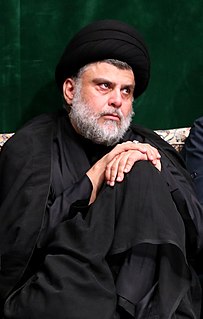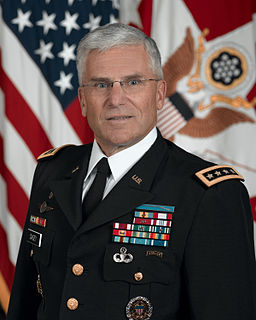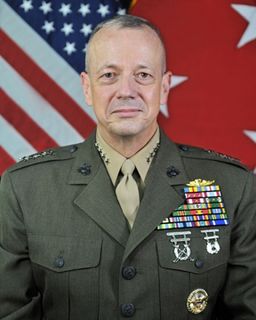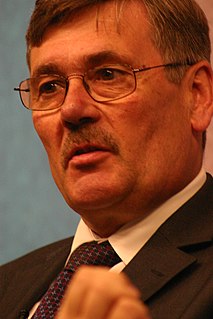A Quote by Andrew Bacevich
The U.S. military today garrisons the planet in a fashion without historical precedent. Successive administrations, regardless of party, justify and perpetuate this policy by insisting that positioning U.S. forces in distant lands fosters peace, stability, and security. In the present century, however, perpetuating this practice has visibly had the opposite effect. In the eyes of many of those called upon to "host" American bases, the permanent presence of such forces smacks of occupation. They resist. Why should U.S. policymakers expect otherwise?
Quote Topics
American
Bases
Century
Distant
Effect
Expect
Eyes
Fashion
Forces
Had
Historical
Host
However
Insisting
Justify
Lands
Many
Military
Occupation
Opposite
Otherwise
Party
Peace
Permanent
Perpetuate
Perpetuating
Planet
Policy
Policymakers
Positioning
Practice
Precedent
Presence
Present
Regardless
Resist
Security
Should
Stability
Those
Today
Why
Without
Related Quotes
The United States military is undoubtedly the world's finest. It's also far and away the most generously funded, with policymakers offering U.S. troops no shortage of opportunities to practice their craft. So why doesn't this great military ever win anything? Or put another way, why in recent decades have those forces been unable to accomplish Washington's stated wartime objectives? Why has the now 15-year-old war on terror failed to result in even a single real success anywhere in the Greater Middle East?
At present, the United States, with over 700 foreign military bases, navies in every ocean, a programme to militarise space, and drone bases planned for all regions of the world, is increasingly perceived in relation to its hard power diplomacy, a threat to political independence and stability for many countries.
One of the real costs of the war is that our security is actually less than it otherwise would have been - ironic, since enhancing security was one of the reasons for going to war. Our armed forces have been depleted - we have been wearing out equipment and using up munitions faster than we have been replacing them; the armed forces face difficult problems in recruitment -by any objective measures,including those used by the armed forces, quality has deteriorated significantly.
The growth of entrepreneurial classes throughout the world is an asset in the promotion of human rights and individual liberty, and it should be understood and used as such. Yet peace is the first and most important condition for continued prosperity and freedom. America's military power must be secure because the United States is the only guarantor of global peace and stability. The current neglect of America's armed forces threatens its ability to maintain peace.



































